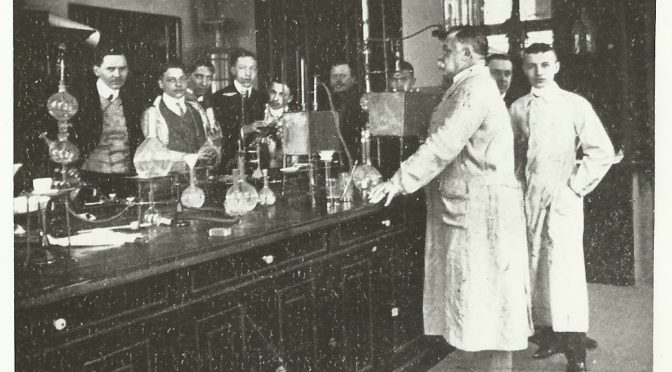L’artisanat et le commerce alimentaire de détail en République tchèque : réinventer une
« tradition » alimentaire et développement territorial
Axe de recherche 1 : Déplacements, Dépaysements et Décalages
 Aurore Navarro est une géographe ruraliste. Elle a soutenu sa thèse de doctorat en novembre 2015 qui porte sur le rôle des marchés de plein vent alimentaires dans la fabrique des lieux. Si dans les années 1980 les marchés de plein air semblaient devoir disparaître, ils se sont maintenus et connaissent dans certains lieux des formes de renouveau. Malgré leur caractère mobile et éphémère, les marchés jouent un rôle important dans la construction et les représentations véhiculées sur les lieux. A partir d’enquêtes qualitatives réalisées en France et en Italie auprès de producteurs et commerçants, la thèse est un essai de géographie sociale sur les acteurs et le fonctionnement interne du marché.
Aurore Navarro est une géographe ruraliste. Elle a soutenu sa thèse de doctorat en novembre 2015 qui porte sur le rôle des marchés de plein vent alimentaires dans la fabrique des lieux. Si dans les années 1980 les marchés de plein air semblaient devoir disparaître, ils se sont maintenus et connaissent dans certains lieux des formes de renouveau. Malgré leur caractère mobile et éphémère, les marchés jouent un rôle important dans la construction et les représentations véhiculées sur les lieux. A partir d’enquêtes qualitatives réalisées en France et en Italie auprès de producteurs et commerçants, la thèse est un essai de géographie sociale sur les acteurs et le fonctionnement interne du marché.
Le projet de post-doctorat a pour ambition d’analyser le nouvel intérêt porté à l’alimentation et à la notion de « tradition » alimentaire en République Tchèque. Au cours de la dernière décennie, de multiples magasins spécialisés et des farmers markets ont vu le jour, comme aux Etats-Unis et en Europe occidentale. De nouveaux producteurs, artisans et commerçants de l’alimentation offrent une alternative à la grande distribution parce que la plupart d’entre eux proposent des produits de « qualité », « locaux » ou « typiques ». Par l’étude approfondie des discours, des pratiques, des représentations, notre recherche tentera de souligner la manière dont ces acteurs contribuent à la définition ou à la réinvention non seulement d’une culture alimentaire mais aussi de dynamiques socio-culturelles et spatiales. La recherche examinera et analysera le rôle spécifique de ce nouveau commerce indépendant dans le développement territorial.
CV
Situation actuelle
Post-doctorat au Laboratoire d’études rurales – Université Lyon 2, EA 3728.
Formation
2015 : Thèse de doctorat en Géographie, Université de Lyon 2, sous la direction de Claire Delfosse. Titre de la thèse : « Le marché de plein vent alimentaire et la fabrique des lieux. Un commerce de proximité multifonctionnel au cœur de la recomposition des territoires ».
2010-2011 : Master 2 en Géographie, Université Lyon 2.
2009-2010 : Licence en Histoire de l’Art, Université de Paris IV-La Sorbonne.
2007-2008 : Master 1 en Histoire (médiévale), Université de Rennes II – Università degli studi di Siena.
2006-2007 : Licence en Histoire, Université de Rennes II.
Expériences professionnelles
Septembre 2016 – Janvier 2017 : Post-doctorat, Laboratoire d’études rurales, Université Lyon 2/ Service d’Art et d’Histoire d’Annecy/DRAC.
Mars 2016 – Mai 2016 : Ingénieur d’études – Associazione As.Ca.MM.
2014-2015 : Ingénieur d’études – Musée du Revermont /Divagri/ Laboratoire d’études rurales.
2012-2013 : Monitorat, Université Lyon 2.
Septembre 2013 – Février 2014 : Doctorant invité, CNR-CERIS, Torino.
Publications
Ouvrage et chapitres d’ouvrages
- I castagneti della Montagnola senese e della Val di Merse. Sunto storico dal Medioevo ai nostri giorni, 2016, Tipografia senese, Siena.
- Claire Delfosse, Aurore Navarro, 2012, « Une nouvelle gouvernance pour les marchés de détail ? », In : Au plus près de l’assiette…Développer, structurer et pérenniser les circuits courts alimentaires, Anne-Hélène Prigent-Simonin, Hérault-Fournier Catherine (dir.).
Articles
- « Les marchés de plein vent. Le cas des commerces de l’alimentations », In: Ethnologie française, XLVII, n°01/2017, p. 111-120.
- « Actualité des marchés de plein vent », In : Pour, n°2015-216, november 2012.
- Lucile Garçon, Aurore Navarro, 2012, « La société des territorialistes italienne », In : Tracés. Revue des sciences humaines, n°22.
- Claire Delfosse, Aurore Navarro, 2011, « Spécificité et renouveau des marchés dans le cadre des circuits courts », Les Carnets Pro de Liproco, n°9, 12 p.


